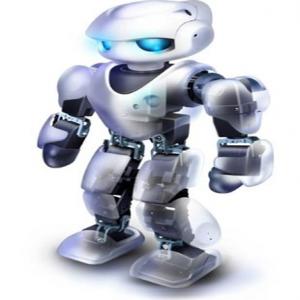

"Artificial intelligence (AI) is arguably the most exciting field in robotics. It's certainly the most controversial: Everybody agrees that a robot can work in an assembly line, but there's no consensus on whether a robot can ever be intelligent. Like the term 'robot' itself, artificial intelligence is hard to define. Ultimate AI would be a recreation of the human thought process -- a man-made machine with our intellectual abilities. This would include the ability to learn just about anything,...
"Artificial intelligence (AI) is arguably the most exciting field in robotics. It's certainly the most controversial: Everybody agrees that a robot can work in an assembly line, but there's no consensus on whether a robot can ever be intelligent. Like the term 'robot' itself, artificial intelligence is hard to define. Ultimate AI would be a recreation of the human thought process -- a man-made machine with our intellectual abilities. This would include the ability to learn just about anything, the ability to reason, the ability to use language and the ability to formulate original ideas. Roboticists are nowhere near achieving this level of artificial intelligence, but they have had made a lot of progress with more limited AI. Today's AI machines can replicate some specific elements of intellectual ability." – http://science.howstuffworks.com/robot6.htm
Many scientists remain doubtful that true AI can ever be developed. The operation of the human mind is still little understood, and computer design may fail to progress enough to duplicate its complex processes. The main difference between AI and robots is that AI is capable of independent thinking whereas robots function using intricate programs that instruct them to respond a certain way in different situations.
View more
Comments (3)
More Episodes
All Episodes>>Create Your Podcast In Minutes
- Full-featured podcast site
- Unlimited storage and bandwidth
- Comprehensive podcast stats
- Distribute to Apple Podcasts, Spotify, and more
- Make money with your podcast
It is Free












